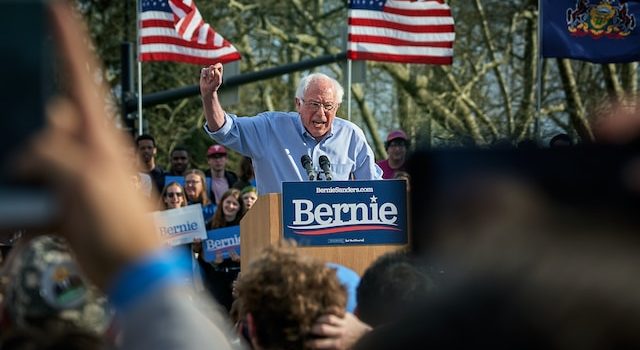
Introduction
In the realm of legal academia, where statutes and case law often dominate discussions, a formidable voice emerges. Meet Emily Chambers, a seasoned legal professional with an unwavering commitment to defending democracy. Drawing from over a decade of experience in constitutional law, Emily stands as a beacon, rallying law students to unite in a timely call to action. This article serves not only as a testament to her expertise but also as a roadmap for the next generation of legal minds eager to make a lasting impact on the democratic landscape.
Understanding the Landscape: Democracy Under Siege
As we navigate the complexities of the 21st century, democracy faces challenges that demand our attention. From the rise of authoritarianism to the erosion of civil liberties, the very foundations of democratic societies are under siege. This section provides a comprehensive overview of the current threats to democracy worldwide. Emily, drawing on her extensive legal background, sheds light on the intricacies of these challenges, offering readers a sobering look at the state of our democratic institutions.
The Role of Law Students: Building Strong Foundations
Law students find themselves at a unique crossroads, standing on the precipice of legal careers that hold immense potential for shaping the future. Emily encourages them to recognize the weight of their responsibility and the role they play in fortifying the foundations of democracy. This section explores the pivotal position law students occupy, emphasizing the need for a holistic approach to legal education that transcends the confines of the classroom.
Why Law Students Have a Special Role
Law students possess unique training and perspective:
- Deep Legal Knowledge: Even in training, they understand constitutional rights, due process, and separation of powers.
- Passion for Justice: Many entered law school driven by a desire to correct social injustices.
- Network and Resources: Access to professors, clinics, and legal research databases amplifies their impact.
- Idealism and Energy: Young voices can mobilize peers and communities with fresh ideas and digital savvy.
When they unite, law students become a formidable force—able to draft petitions, host public forums, and provide free legal clinics.
Ways Law Students Can Defend Democracy
Law students today have a toolkit of actions:
1. Legal Aid Clinics
Setting up pop-up clinics at protests or community centers to help citizens know their rights—whether facing arrest, voter registration issues, or free-speech questions.
2. Drafting Petitions and Amicus Briefs
Collaborating to draft petitions to legislatures or amicus briefs in key court cases that affect voting rights, free assembly, or judicial independence.
3. Public Education Campaigns
Hosting webinars, writing op-eds, or launching social-media campaigns explaining complex legal issues in simple terms—boosting civic knowledge and engagement.
4. Monitoring Government Actions
Staying alert to draft laws or executive orders that threaten checks and balances, then mobilizing classmates and alumni to testify or submit comments.
5. Coalition Building
Partnering with historians, political scientists, journalists, and community activists to present a united front defending democratic norms.
By using diverse methods, law students ensure their efforts reach courts, legislatures, and the broader public.
Strategies for Civic Engagement: From Lecture Halls to the Frontlines
Armed with legal acumen, law students possess a potent tool for effecting change. Emily Chambers imparts practical strategies for law students to actively engage in the defense of democracy. From organizing awareness campaigns on campus to participating in community outreach programs, the article outlines actionable steps that bridge the gap between legal theory and real-world impact. It encourages law students to transcend the boundaries of academic discourse and step into the arena of civic participation.
Expert Advice: Voices of Experience

To enrich the narrative, the article features insights from seasoned democracy advocates and legal professionals. Through interviews, Emily brings forth the wisdom garnered from those who have navigated the intricate landscapes of democracy defense. Their experiences, challenges faced, and triumphs achieved serve as invaluable guidance for law students aspiring to follow in their footsteps.
A Case Study: University of Freedom’s “Rights Watch” Project
At one leading law school, students launched Rights Watch, focusing on local election integrity:
- Voter Hotline: Operated during elections, offering real-time legal advice to voters facing ID or registration issues.
- Know Your Rights Guides: Distributed 5,000 flyers in multiple languages explaining protest and speech rights.
- Surveillance Audits: Documented instances of police overreach at demonstrations, reporting findings to oversight bodies.
- Legislative Testimony: Students wrote and delivered testimony urging clearer protest regulations and better training for law enforcement.
Results included blocked attempts at unnecessary ID laws and improved local police guidelines for handling protests.
Overcoming Challenges
Student activism can face obstacles:
- Balancing Studies and Activism: Time management is key—teamwork and dividing roles prevent burnout.
- Institutional Pushback: Some campuses discourage protests; students must rely on constitutional protections for free speech and assembly.
- Safety Concerns: Training in peaceful protest tactics and legal updates on protest rules can reduce risks.
- Funding Needs: Grants from bar associations, alumni, or civic foundations help cover material and outreach costs.
By anticipating these challenges, law students can stay effective and sustainable in their efforts.
Table: Democracy Defense Essentials
To enhance reader comprehension, a visually engaging table encapsulates key aspects discussed in the article. From an overview of current threats to delineating the responsibilities and opportunities for law students, this table serves as a quick reference guide, ensuring that readers can grasp the essentials at a glance.
| Key Aspect | Insight |
|---|---|
| Current Threats | Overview of global challenges to democracy |
| Law Student’s Role | Responsibilities and opportunities |
| Civic Engagement Strategies | Practical steps for impactful involvement |
| Expert Insights | Wisdom from seasoned democracy advocates |
Comparative Table: Strategies for Civic Engagement
In this section, a comparative table offers a visual representation of various civic engagement strategies. By weighing the benefits against the challenges, law students gain a nuanced understanding of their options. From pro bono legal services to advocacy and activism, each strategy is dissected, providing a comprehensive overview that aids in informed decision-making.
| Civic Engagement Strategy | Benefits | Challenges |
|---|---|---|
| Pro Bono Legal Services | Legal experience, community impact | Time constraints, resource limitations |
| Advocacy and Activism | Public awareness, policy influence | Managing public opinion, potential backlash |
| Legislative Internships | Inside knowledge, networking opportunities | Competitive application process, time commitment |
How You Can Get Involved Today
Whether you’re a law student or citizen, here’s how to join the cause:
- Attend Workshops: Many law schools host free sessions on protest rights and voter law.
- Volunteer: Offer your time to local legal aid clinics or election monitoring groups.
- Write and Speak Out: Use blogs, podcasts, or campus papers to highlight democratic challenges.
- Join Student Groups: Look for chapters of the ACLU, Amnesty International, or law school democracy clubs.
- Stay Informed: Follow trusted legal news sources and sign up for legislative alerts.
Every action counts. By uniting, law students—and all citizens—help defend democracy’s promise.
Conclusion
As the article nears its conclusion, Emily Chambers’ call to action resonates louder than ever. Law students, armed with legal expertise, are positioned as architects of a resilient and just future. The fight for democracy is not an abstract concept but a tangible responsibility that transcends the pages of legal textbooks. United, law students can be catalysts for positive change, ensuring that the democratic ideals we hold dear endure and thrive in the face of adversity.








